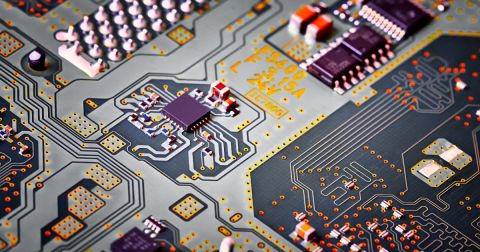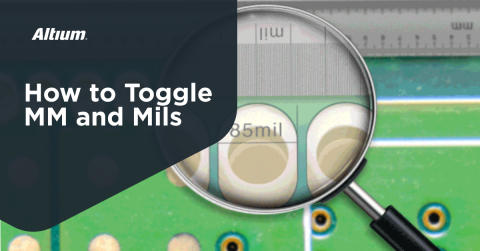How the Right Tools in Your PCB Toolkit Can Help Your Next Design
When my sons were young, it was a joy for me to introduce and show them how to use tools for repair or construction. They would ask questions about the different tools in my toolkit, and my pair of old Channellock pliers really seemed to catch their interest. To tell the truth, those Channellocks are my favorite too. I inherited them from my dad, and still use them. They’re the first tool in my kit that I look for when I need to solve a problem.
The knowledge and comfort you have for any tool will dictate what jobs you can use it for; I’m sure I use those pliers far beyond their intended uses. A tool is never just the tool—you always have to consider the mind using it. If you have the right tools for the job, then it should be much easier to be successful. Even when you’re designing printed boards: your success will depend on how prepared you are. Your toolkit should contain resources that you can use for information and for getting help when you have questions. But above all, your most reliable and important tool will be your PCB design software.
The keys to your PCB toolkit will always be the resources which acclimate yourself with your designs, your community knowledge, and the proper software. Let me walk you through my toolkit; you know us dads—we’re always looking for excuses to show off our tools.
Information Resources
As a PCB, you know that there will always be more to learn about our profession. Therefore, some of the most useful tools you can collect in your PCB toolkit are different resources to help add to your skills and knowledge. Here are some resources that are available to help you:
-
Trade magazines: These are great for learning new design technologies, enhanced software tools, and current trends in the industry. Many of these publications, like The PCB Design Magazine, are online and have free subscriptions.
-
Seminars, conferences, and trade shows: You can find lots of seminars put on by different organizations or vendors that will highlight different design or software technologies. Conferences, such as PCB West, are usually held in central locations and provide many different presentations on a variety of subjects. Trade shows are often coupled with conferences and will showcase vendors and how they can help you.
-
Training: There are many different training classes held in different areas covering a variety of subjects. Often the training is software specific, but you can find design topic training as well. One of the most important training classes for PCB designers to look into is the IPC Certified Interconnect Designer (CID) courses. These teach basic and advanced PCB design skills.
Professional Networking
I have one set of tools in my PCB toolkit that I am especially careful to maintain: my professional network. Whenever I’ve been stalled by a question or a problem concerning a particular design technology, or the use of a specific software function, I’ve been fortunate in being able to turn to my professional network for help. You won’t ever get to a point where you’re comfortable with every design, and you know every software available; keeping in contact and working with other professionals in your field who know your expertise and who you trust is paramount for problem-solving.
This is not the kind of tool that you can purchase or learn, it has to be cultivated over time as you grow in your career. I have designed boards at many different jobs and have worked to maintain contact with as many of those past co-workers as possible. I also keep in touch with peers at different trade shows and through social media. However you develop your own professional network, if you guard it carefully you will reap an enormous benefit from it. Having people who know you, and know-how best to help you, will probably end up being one of the most prized tools in your toolkit.
Using the Right PCB Design Software
Gathering your resources through trade magazines, professional events, and training may be your most useful tool; maintaining and engaging with your professional network may be your most prized tool; however, when it comes down to it, your most important tool is your PCB design software. It is what you will be working primarily with, after all, and it is important that you find one that best fits your needs.
PCB design systems are made for the experience and the scale that you’re working with. Some systems are geared toward hobby projects, or simple designs, while others have large vaults of information and tools available, adding complexity to make the most available to you. It is important to choose software that will provide you with the functionality that you need to meet your design needs. It is also important that you choose software that will grow with you as your design needs change and increase over time.
Will you need to create and maintain a schematic? Will you need libraries? How many people are going to be using this software? What type of layout technology will you be designing? Will you need to connect your interface to other tools or simulators? Part of choosing your design software is keeping in mind these questions and others like them which enable you to have an idea of your needs from the software.
Having the right software for the job is the most important tool to have in your PCB toolkit. Just as those Channellocks are the go-to tool that I trust the most at home, you need to have that same level of trust in your PCB design software. PCB design software, like Altium Designer®, is a powerful and versatile tool to have in your PCB toolkit. With advanced features for all aspects of your design cycle, Altium will help you to get the job done right—they even offer courses to train and teach you how to use the software.
Would you like to find out more about how Altium can help you with your next PCB design? Talk to an expert at Altium.










